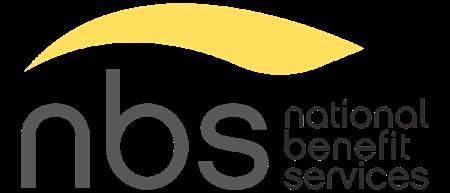













right.
Enter your information:
• Last name
• Date of birth
• Last four digits of your Social Security number
Note: THEbenefitsHUB uses this information to check behind the scenes to confirm your employment status. 4
Once confirmed, the Additional Security Verification page will list the contact options from your profile. Select either the Text, Email, Call, or Ask Admin options to receive a code to complete the final verification step.
Enter the code that you receive and click Verify to begin your benefits enrollment.
Review your personal information and verify covered dependents. Contact your employer of any discrepancy.
Select and confirm the dependent(s) who are to be covered on each benefit screen (medical, dental, etc.). If a dependent is not selected for a benefit, it will not be provided. NOTE: Dependents cannot be double-covered by married spouses within the district as both employees and dependents.
Enrollment made easy with your smartphone or tablet.
Text BENEFITS to 214-831-4208 to opt into important text message* enrollment reminders.
Scan the QR code to go to your benefit website for :
• Benefits resources
• Online enrollment • Interactive tools
• And more!
* Standard message rates may apply.

Ask your Benefits Department. Call 833-510-4202 for Higginbotham Public Sector.
What if I miss the enrollment deadline?
You may only enroll for or change your benefits during Open Enrollment or if you have a Qualifying Life Event.
Is there an age limit for dependents to be covered under my benefits?
You may cover dependents up to age 26 on most benefit plans, but there are exceptions. See the Eligibility section for more details.
Where do I find benefit summaries and forms?
Access www.myaisdbenefits.net and click on the benefit plan you need (i.e., Dental). Forms and benefits information are under the Benefits and Form section.
How do I find an in-network provider?
Access www.myaisdbenefits.net and click on the benefit plan for the provider you need to find. Click on the Quick Links section to find provider search links.
If the medical carrier provides ID cards and there is a plan change, new cards usually arrive within four weeks of your effective date. If there are no plan changes, a new card may not be issued.
You may not need a card for dental and vision plans. Simply give your provider the insurance company’s name and phone number to verify benefits. You can also print a temporary card by visiting the insurance company’s website.
Ask your Benefits Department. Call 833-510-4202 for Higginbotham Public Sector.
The following limitations and exclusions may apply when obtaining coverage as a married couple or for your dependents.
Can I cover my family — a spouse or a dependent — as dependents on my benefits if we work for the same employer?
Some benefits may not allow you to do this if you work for the same employer. Review the applicable plan documents, contact Higginbotham Public Sector, or contact the insurance carrier for spouse and dependent eligibility.
Are there FSA/HSA limitations for married couples?
Yes, generally. Married couples may not enroll in both a Flexible Spending Account (FSA) and a Health Savings Account (HSA). If your spouse is covered under an FSA that reimburses for medical expenses then you and your spouse are not HSA-eligible – even if you would not use your spouse’s FSA to reimburse your expenses. However, there are some exceptions to the general limitation for specific types of FSAs. Contact the FSA and/or HSA provider before you enroll or reach out to your tax advisor for further guidance.
Disclaimer: You acknowledge that you have read the limitations and exclusions that may apply to obtaining spouse and dependent coverage, including limitations and exclusions that may apply to enrollment in Flexible Spending Accounts and a Health Savings Account as a married couple. You, the enrollee, shall hold harmless, defend, and indemnify Higginbotham Public Sector, LLC from any and all claims, actions, suits, charges, and judgments whatsoever that arise out of your enrollment in spouse and/or dependent coverage, including enrollment in an FSA and HSA.

You are eligible for coverage if you are a regular, full-time employee. You may only enroll for coverage when:
• You are a new hire
• It is Open Enrollment (OE)
• You have a Qualifying Life Event (QLE)
See page 5 for Important Exclusions and Limitations.
Who is Eligible
• A regular, full-time employee working an average of 20 hours per week
When to Enroll
• Enroll by the deadline given by Human Resources
When Coverage Starts
• First of the month following date of hire

About Your Coverage Effective Date
You must be Actively at Work on the date your coverage becomes effective. Your coverage must be in effect for your spouse’s and eligible children’s coverage to take effect. See plan documents for specific details.
Who is Eligible
• A regular, full-time employee working an average of 20 hours per week
When to Enroll
• Enroll during OE or when you have a QLE
When Coverage Starts
• You must be actively at work on the plan effective date for new benefits to be effective
• QLE: Ask Human Resources
Who is Eligible
• Your legal spouse
• Child(ren) under age 26, regardless of student, dependency, or marital status
• Child(ren) over age 26 who are fully dependent on you for support due to a mental or physical disability and who are indicated as such on your federal tax return
When to Enroll
• You must enroll the dependent(s) during OE or when you have a QLE
• When covering dependents, you must enroll for and be on the same plans
• Dependents cannot be double-covered by married spouses within the district as both employees and dependents
When Coverage Starts
• Based on OE or QLE effective dates
You may only change coverage during the plan year if you have a Qualifying Life Event, such as:

Marriage
Divorce
Legal separation
Annulment

Birth Adoption Placement for adoption
Change in benefits eligibility
Death
You have 31 days from the event to notify Human Resources and complete your changes. You may need to provide documents to verify the change.

Undergoing FMLA, COBRA event, court judgment, or decree
Becoming eligible for Medicare, Medicaid, or TRICARE
Receiving a Qualified Medical Child Support Order

Gain or loss of benefits coverage
Change in employment status affecting benefits Significant change in cost of spouse’s coverage
You must inform Human Resources and make any benefit changes within 30 days of the
AISD contributes the following each month to employees participating in a medical plan:
• $299 per month for Professional employees
• $314 per month for all Para-Professional and Auxiliary employees
The rates shown reflect the amount employees will pay if this district contribution amount is approved for the 2025-2026 plan year.



The Wellness Program is designed to assist in improving your overall health and wellness. This program is provided by Arlington ISD at no cost to you. Be the healthiest you can be - for yourself, your family, and your friends - the wellness program can help educate, motivate, and assist you in realizing the limitless benefits of making healthy choices and adopting healthy behaviors.
The Wellness Program is available to all employees and participation is free. A $51 monthly wellness credit is available to TRS ActiveCare medical plan participants!
The Arlington Independent School District wellness program is a vital part of the overall benefits program. AISD has partnered with Vitality to bring you the latest health and wellness tools and educational programs to help you live better and achieve your health goals.
The AISD wellness program is run on a wellness point system. Members are eligible for a $51 monthly wellness credit if they choose to participate, and are enrolled in a TRS medical plan, and reach the required number of wellness points on Vitality by July 31, 2026.

questions about registration?
Register today so you are ready to use this valuable service when and where you need it.
Visit www.powerofvitality.com . Call 877-224-7117
Download the Vitality Mobile app.
Access Vitality Mobile App from the App Store or Google Play or register online at PowerofVitality.com

Becoming familiar with your options for medical care can save you time and money.
HEALTH CARE PROVIDER
Non-Emergency Care
Access to care via phone, online video, or mobile app whether you are at home, work, or traveling; medications can be prescribed
Telemedicine
24 hours a day, 7 days a week
Generally, the best place for routine preventive care; established relationship; able to treat based on medical history
Doctor’s Office
Office hours vary
Usually lower out-of-pocket cost than urgent care; when you can’t see your doctor; located in stores and pharmacies
Retail Clinic
Hours vary based on store hours
When you need immediate attention; walk-in basis is usually accepted
Urgent Care
Emergency Care
Hospital ER
Generally includes evening, weekend and holiday hours
Freestanding ER
Life-threatening or critical conditions; trauma treatment; multiple bills for doctor and facility
24 hours a day, 7 days a week
Services do not include trauma care; can look similar to an urgent care center, but medical bills may be 10 times higher
24 hours a day, 7 days a week
Allergies
Cough/cold/flu Rash
Stomachache
Infections
Sore and strep throat Vaccinations
Minor injuries/sprains/ strains
Common infections
Minor injuries
Pregnancy tests
Vaccinations
Sprains and strains
Minor broken bones
Small cuts that may require stitches
Minor burns and infections
Chest pain
Difficulty breathing
Severe bleeding
Blurred or sudden loss of vision
Major broken bones
Most major injuries except trauma
Severe pain
4+ hours
Minimal
Note: Examples of symptoms are not inclusive of all health issues. Wait times described are only estimates. This information is not intended as medical advice. If you have questions, please call the phone number on the back of your medical ID card.
Alongside your medical coverage is access to quality telehealth services through MDLIVE
Connect anytime day or night with a board-certified doctor via your mobile device or computer.
While MDLIVE does not replace your primary care physician, it is a convenient and cost-effective option when you need care and:
• Have a non-emergency issue and are considering an after hours health care clinic, urgent care clinic, or emergency room for treatment
• Are on a business trip, vacation, or away from home
• Are unable to see your primary care physician
Managing stress or life changes can be overwhelming but it’s easier than ever to get help right in the comfort of your own home. Visit a counselor or psychiatrist by phone, secure video, or MDLIVE App.
Talk to a licensed counselor or psychiatrist from your home, office, or on the go!
Affordable, confidential online therapy for a variety of counseling needs.
The MDLIVE app helps you stay connected with appointment reminders, important notifications and secure messaging.

Use telemedicine for minor conditions such as:
• Sore throat
• Headache
• Stomachache
• Cold
• Flu
• Mental health issues
• Allergies
• Fever
• Urinary tract infections
Do not use telemedicine for serious or life-threatening emergencies.
Registration is Easy
Register with MDLIVE so you are ready to use this valuable service when and where you need it.
Visit www.mdlive.com/fbsbh
Call 888-365-1663
Download the MDLIVE app. download the MDLIVE mobile app to your smartphone or mobile device
Select MDLIVE as a benefit and FBS as your Employer/Organization when registering your account.

The Hospital Indemnity/plans help you with the high cost of medical care by paying you a cash benefit when you have an inpatient hospital stay. Unlike traditional insurance which pays a benefit to the hospital or doctor, these plans pay you directly. It is up to you how you want to use the cash benefit. These costs may include meals, travel, childcare or eldercare, deductibles, coinsurance, medication, or time away from work. See the plan document for full details.

Our dental plan helps you maintain
Two levels of benefits are available with the DPPO plan: in-network and out-of-network. You may select any dental provider for care, but you will pay less and get the highest level of benefits with in-network providers. You could pay more if you use an out-of-network provider.


Our vision plan offers quality care to help preserve your health and eyesight. Regular exams can detect certain medical issues such as diabetes and high cholesterol, in addition to vision and eye problems.
You may seek care from any vision provider, but the plan will pay the highest level of benefits when you see in-network providers.
•

Educator Disability insurance combines features of short-term and longterm disability into one plan. Disability insurance protects part of your income if you are unable to work due to a covered accident, illness, or pregnancy. We offer Educator Disability insurance for you to purchase and allow you to choose the coverage amount and waiting period that best suits your needs.

Benefits Begin
The first number indicates the number of days you must be disabled due to Injury and the second number indicates the number of days you must be disabled due to Sickness
Benefit
Depending on the age at which disability occurs, the maximum duration may vary
1 If your elimination period is 30 days or less and you are confined to a hospital for 24 hours or more, the elimination period will be waived, and benefits will be payable from the first day of hospitalization.
2 Benefits may not be paid for any condition treated within three months prior to your effective date until you have been covered under this plan for 12 months. If your disability is a result of a pre-existing condition, benefits will be paid for a maximum of one month.
What is disability insurance?

and learn more!
Disability insurance protects one of your most valuable assets: your paycheck. This insurance replaces part of your income if you are physically unable to work due to sickness or injury for an extended period of time. The Educator Disability plan is unique in that it includes both short- and long-term coverage in one convenient plan.
Does this plan have pre-existing condition limitations?
Yes. However, all plans will include pre-existing condition limitations that could impact you if you are a first-time enrollee in your employer’s disability plan (including your initial new hire enrollment). Review the plan documents for full details.
Will I get all of my disability benefit?
Your disability benefit may be reduced by other income you receive or are eligible to receive due to your disability, such as:
• Social Security disability insurance
• State teacher retirement disability plans
• Workers’ compensation
• Other employer-based disability insurance coverage you may have
• Unemployment benefits
• Retirement benefits that your employer fully or partially pays for (such as a pension plan)

Your disability plan selection should be a two-step approach.
Choose your elimination period, or waiting period. This is how long you are disabled and unable to work before your benefit will begin. It will be displayed as two numbers, such as 14/14, 60/60, etc.
The first number indicates the number of days you must be disabled due to Injury and the second number indicates the number of days you must be disabled due to Sickness
When choosing your elimination period, determine how long you could go without a paycheck. Choose your elimination period based on your answer.
Note: Some plans will waive the elimination period if you choose 30/30 or less and you are confined as an inpatient to the hospital for a specific time period. Review your plan details to see if this feature is available to you.
Choose your benefit amount. This is the maximum amount of money you would get from the carrier on a monthly basis once your disability claim is approved by the carrier.
When choosing your monthly benefit, consider how much money you need to pay your monthly bills. Choose your monthly benefit amount based on your answer.

Treatment for cancer is often lengthy and expensive. While your health insurance helps pay the medical expenses for cancer treatment, it does not cover the cost of non-medical expenses, such as out-of-town treatments, special diets, daily living, and household upkeep. In addition to these non-medical expenses, you are responsible for paying your health plan deductibles and/or coinsurance. Cancer insurance helps pay for these direct and indirect treatment costs so you can focus on your health.
•

Accident insurance provides affordable protection against a sudden, unforeseen accident. This benefit helps offset the direct and indirect expenses resulting from an accident such as copayments, deductible, ambulance, physical therapy, childcare, rent, and other costs not covered by traditional health plans. See the plan document for full details.
•
Specific Sum Injuries
Dislocations, ruptured discs, eye injuries, fractures, lacerations, concussions, and more
1 Percentage of benefit paid for dismemberment is dependent on type of loss.

Life and Accidental Death and Dismemberment (AD&D) insurance is important to your financial security, especially if others depend on you for support or vice versa.
With Life insurance, you or your beneficiary(ies) can use the coverage to pay off debts such as credit cards, loans, and bills. AD&D coverage provides specific benefits if an accident causes bodily harm or loss (e.g., the loss of a hand, foot, or eye). If death occurs from an accident, 100% of the AD&D benefit would be paid to you or your beneficiary(ies).
Basic Term Life and AD&D insurance are provided at no cost to you. You are automatically covered at $10,000 for each benefit.
If you need more coverage than Basic Term Life and AD&D, you may buy Supplemental Term Life for yourself and your dependent(s). If you do not elect Supplemental Term Life insurance when first eligible, or if you want to increase your benefit amount at a later date, you may need to show proof of good health.

Watch and learn more!
A beneficiary is the person or entity you elect to receive the death benefits of your Life and AD&D insurance policies. You can name more than one beneficiary, and you can change beneficiaries at anytime. If you name more than one beneficiary, you must identify how much each beneficiary will receive (e.g., 50% or 25%). The total must add up to 100%.

Supplemental AD&D coverage is separate and apart from your Basic and Supplemental Term Life insurance coverage. It provides benefits beyond your disability or life insurance for covered losses that are the result of an accidental injury or loss of life. The full amount of AD&D coverage you select is called the Full Amount and is equal to the benefit payable for the loss of life. Benefits for other losses — such as loss of sight, speech or hearing; coma; or paralysis — are payable as a predetermined percentage of the full amount.
Your Supplemental AD&D amount is equal to your Supplemental Term Life amount. You can also cover your dependent spouse and child(ren). Dependent coverage amounts will be equal to their Dependent Term Life coverage amounts.
• Portable – keep your supplemental coverage if you leave your current employer
• Convertible – convert your group term life insurance benefits to an individual whole life policy if your coverage ends
• Accelerated Benefits Option – get up to 75% of your life insurance benefit if you (or your spouse) are terminally ill. However, the one-time benefit paid will not be greater that $500,000.
Some limitations and exclusions apply, so see the plan documents for details.


Individual Life and Accidental Death and Dismemberment (AD&D) insurance is an individual policy that you can buy and tailor to your coverage needs. It differs from group life insurance, which provides coverage to employees of a company or members of an organization. Individual Life and AD&D coverage provides financial safety net for your loved ones.
With Life insurance, you or your beneficiary(ies) can use the coverage to pay off debts, such as credit cards, loans, and bills. AD&D coverage provides specific benefits if an accident causes bodily harm or loss (e.g., the loss of a hand, foot, or eye). If death occurs from an accident, 100% of the AD&D benefit would be paid to you or your beneficiary(ies). Contact the carrier directly for rates, coverage options, and riders.
Help protect your family with the Family Protection Plan Group Level Term Life Insurance to age 121. You can get coverage for your spouse even if you don’t elect coverage on yourself. And you can cover your financially dependent children and grandchildren (14 days to 26 years old). The coverage lasts until age 121 for all insured,* so no matter what the future brings, your family is protected.
Why buy life insurance when you’re young?
Buying life insurance when you’re younger allows you to take advantage of lower premium rates while you’re generally healthy, which allows you to purchase more insurance coverage for the future. This is especially important if you have dependents who rely on your income, or you have debt that would need to be paid off.
Coverage continues with no loss of benefits or increase in cost if you terminate employment after the first premium is paid. We simply bill you directly.
Why is portability important?
Life moves fast so having a portable life insurance allows you to keep your coverage if you leave your school district. Keeping the coverage helps you ensure your family is protected even into your retirement years.

Coverage pays 30% (25% in CT and MI) of the coverage amount in a lump sum upon the occurrence of a terminal condition that will result in a limited life span of less than 12 months (24 months in IL).
Within one business day of notification, payment of 50% of coverage or $10,000 whichever is less is mailed to the beneficiary, unless the death is within the two-year contestability period and/or under investigation. This coverage has no war or terrorism exclusions.
Easy payment through payroll deduction.
Optional benefit that accelerates a portion of the death benefit on a monthly basis, up to 75% of your benefit, and is payable directly to you on a tax favored basis* for the following:
• Permanent inability to perform at least two of the six Activities of Daily Living (ADLs) without substantial assistance; or
• Permanent severe cognitive impairment, such as dementia, Alzheimer’s disease and other forms of senility, requiring substantial supervision.
Many individuals who can’t take care of themselves require special accommodations to perform ADLs and would need to make modifications to continue to live at home with physical limitation. The proceeds from the Quality of Life benefit can be used for any purpose, including costs for infacility care, home healthcare professionals, home modifications, and more.
The Family Protection Plan offers a lump-sum cash benefit if you die before age 121. The initial death benefit is guaranteed to be level for at least the first ten policy years. Afterward, the company intends to provide a nonguaranteed death benefit enhancement which will maintain the initial death benefit level until age 121. The company has the right to discontinue this enhancement. The death benefit enhancement cannot be discontinued on a particular insured due to a change in age, health, or employment status.
Identity theft is one of the fastest-growing crimes in the country. Millions of people have their identity stolen each year.
Protect yourself and restore your identity with coverage that includes:
• Identity consultation and advice
• Licensed private investigators
• Identity and credit monitoring
• Social media monitoring
• Identity restoration
• Threat and credit alerts
• 24/7 emergency ID protection access
• Mobile app


Comprehensive coverage and care for emergency transport.
Our Emergent Premier membership plan includes:
• Emergency Ground Ambulance Coverage2
• Your out-of-pocket expenses for your emergency ground transportation to a medical facility are covered with MASA.
Your out-of-pocket expenses for your emergency air transportation to a medical facility are covered with MASA.
Hospital to Hospital Ambulance Coverage2
When specialized care is required but not available at the initial emergency facility, your out-of-pocket expenses for the ground or air ambulance transfer to the nearest appropriate medical facility are covered with MASA.
Should you need continued care and your care provider has approved moving you to a hospital nearer to your home, MASA coordinates and covers the expense for ambulance transportation to the approved medical facility.
In the event your minor child traveling with you is left unattended due to your emergency transport, MASA coordinates services and covers expenses to return your child safely home.
If you are traveling with your pets and an emergency occurs requiring your medical transport, MASA coordinates services and covers expenses for returning up to two pets to your home

Should you contract a communicable disease while traveling away from home, your out-of-pocket expenses are eased with MASA.
Should you need care in a rehabilitation facility, skilled nursing facility, long-term care facility, hospice, or at home after an emergency, your out-of-pocket expenses for transport are eased with MASA.
MASA is coverage and care you can count on to protect you from the unexpected. With us, there is no “out-of-network” ambulance. Just send us the bill when it arrives and we’ll work to ensure charges are covered. Plus, we’ll be there for you beyond your initial ride, with expert coordination services on call to manage complex transport needs during or after your emergency — such as transferring you and your loved ones home safely.
Protect yourself, your family, and your family’s financial future with MASA.
Coverage territories
1. United States only.
2. United States and Canada only.
3. United States, Canada, Mexico, the Caribbean (excluding Cuba), the Bahamas and Bermuda.
4. Worldwide — contingent upon ten (10) day prior notice, some exclusions apply.
LTC offers an array of medical care, personal assistance and social support services if a physical or mental condition prevents you from independently taking care of yourself for an extended period. An LTC policy covers many of these high-cost services: nursing home, assisted living facility, adult day care, home health care, and personal care. Benefits begin after a 90-day elimination period.
You may buy additional LTC coverage for your family. You must complete a benefit election form and possibly a medical questionnaire, which is subject to Medical Underwriting approval. For More Information
Visit www.unuminfo.com/ArlingtonISD
Call 800-227-4165



You love your pet and consider them a member of your family. Pet insurance provides pet parents resources to keep your pet safe and healthy while avoiding financial crisis due to unexpected pet medical emergencies.
Accidents, including poisonings and allergic reactions
Injuries, including cuts, sprains and broken bones
Common illnesses, including ear infections, vomiting and diarrhea
Serious/chronic illnesses, including cancer and diabetes
Hereditary and congenital conditions
Surgeries and hospitalization
X-rays, MRIs and CT
Prescription
and

At many points in your life, you may need legal assistance. Getting legal help can be a stressful and expensive process – many firms may charge up to $350 an hour. For these reasons, your employer offers a legal assistance plan to help you get the guidance you need. This plan offers legal help at a fixed and affordable rate to assist with these types of issues:
• Family (adoption, juvenile court, prenuptial agreements)
• Financial (bankruptcy, affidavits, tax audits)
• Home (title disputes, deeds, foreclosures, mortgages)
• Auto (traffic violations, injuries, driver’s license restoration)
• General (document review, consultations, wills, estates)
• And more



We offer a Health Savings Account (HSA) to offset your HDHP medical costs, reduce your taxes, and offer a long-term tax-advantaged savings account.
An HSA is like a personal savings account that allows you to pay for current or future health care expenses with pre-tax dollars or save the funds for retirement. An HSA is always yours to keep, even if you change health plans or jobs.
You are eligible to open and contribute to an HSA if you are:
• Enrolled in an HSA-eligible HDHP
• Not covered by another plan that is not a qualified HDHP, such as your spouse’s health plan
• Not enrolled in a Health Care Flexible Spending Account
• Not eligible to be claimed as a dependent on someone else’s tax return
• Not enrolled in Medicare, Medicaid, or TRICARE
• Not receiving Veterans Administration benefits
Having an HSA is a smart financial move!

2025
$4,300 Individual
$8,550 Family
If you are age 55 or older, you can contribute an extra $1,000.
Use it Now
• Make annual HSA contributions.
• Pay for eligible medical costs.
• Keep HSA funds in cash.
Let it Grow
• Make annual HSA contributions.
• Pay for medical costs with other funds.
• Invest HSA funds.
• Have your doctor file your claims and use your HSA debit card to pay any balance due.
• Keep ALL your records and receipts for HSA reimbursements in case of an IRS audit.
• Only HSA accounts opened through our plan administrator are eligible for automatic payroll deductions.
Visit https://www.eecu.org or download the mobile app to find a local financial center, check your balance, pay bills, and more.
Call/Text 817-882-0800 for EECU member service.
Call 800-333-9934 for lost or stolen cards.


HSA contributions are taxdeductible and grow tax-deferred. Withdrawals for qualifying medical expenses are tax-free.

A Flexible Spending Account (FSA) allows you to set aside pretax dollars from each paycheck to pay for certain IRS-approved health and dependent care expenses.
The Health Care FSA covers qualified medical, dental, and vision expenses for you or your eligible dependents. Eligible expenses include:
• Dental and vision expenses
• Medical deductibles and coinsurance
• Prescription copays
• Hearing aids and batteries
You may not contribute to a Health Care FSA if you enrolled in a High Deductible Health Plan (HDHP) and contribute to a Health Savings Account (HSA).
A Limited Purpose Health Care FSA is available if you enrolled in the HDHP medical plan and contribute to an HSA. You can use a Limited Purpose Health Care FSA to pay for eligible out-of-pocket dental and vision expenses only, such as:
• Dental and orthodontia care (e.g., fillings, X-rays, and braces)
• Vision care (e.g., eyeglasses, contact lenses, and LASIK surgery)
• Use your FSA debit card to pay for qualified expenses, doctor visits, and prescription copays.
• Pay out-of-pocket and submit your receipts for reimbursement:
» Visit www.NBSbenefits.com
» Email service@nbsbenefits.com
» Fax 800- 478-1528
The Dependent Care FSA helps pay for expenses associated with caring for elder or child dependents so you or your spouse can work or attend school full-time. You can use the account to pay for daycare or babysitter expenses for your children under age 13 and qualifying older dependents, such as dependent parents. Reimbursement from your Dependent Care FSA is limited to the total amount deposited in your account at that time. To be eligible, you (and your spouse, if married) must be gainfully employed, looking for work, a fulltime student, or incapable of self-care.
• Overnight camps are not eligible for reimbursement (only day camps can be considered).
• If your child turns 13 midyear, you may only request reimbursement for the part of the year when the child is under age 13.
• You may request reimbursement for care of a spouse or dependent of any age who spends at least eight hours a day in your home and is mentally or physically incapable of self-care.
• The dependent care provider cannot be your child under age 19 or anyone claimed as a dependent on your income taxes.




Knowing the difference between a Health Savings Account (HSA) and Flexible Spending Account can help you choose the best option for you and your family. HEALTH SAVINGS ACCOUNT (HSA)
Internal Revenue Code
Description
Employer Eligibility
Section 223
An HSA is an actual bank account in your name that allow you to save and pay for unreimbursed qualified medical expenses tax-free.
SPENDING ACCOUNT (FSA)
Section 125
An FSA allows you to pay out-ofpocket expenses tax-free for:
• copays, deductibles, and certain services not covered by medical plan
• qualifying dependent care
A qualified High Deductible Health Plan All employers
Contribution Source You and/or your employer You and/or your employer
Account Owner Individual Employer
Underlying Insurance Requirement High Deductible Health Plan None
Insurance Plan Minimum Deductible 2025
• $1,650 single
• $3,300 family
Maximum Contribution 2025
• $4,300 single
• $8,500 family
• $1,000 age 55+ catch-up
Permissible Use of Funds
Cash-Outs of Unused Amounts (if no medical expenses)
Year-to-year rollover of account balance?
Use any way you wish. If used for nonqualified medical expenses, funds are subject to the current tax rate plus a 20% penalty.
N/A
$3,200
Reimbursement for qualified medical expenses as defined in Section 213(d) of the Internal Revenue Code.
Permitted, but subject to current tax rate plus 20% penalty (waived after age 65). Not permitted
Yes, it will roll over to use for subsequent year’s health coverage.
No. Access to some funds may be extended if your employer’s plan contains a 2½-month grace period $660 (2025) rollover provision.
Does the account earn interest? Yes No
Portable?
Yes, it is portable year-to-year and between jobs. No


The products and services listed below are examples of medical expenses eligible for payment under your Health Care FSA or HSA. This list is not all-inclusive; additional expenses may qualify, and the items listed are subject to change in accordance with IRS regulations. Please refer to IRS Publication 502 Medical and Dental Expenses at www.irs.gov for a complete description of eligible medical and dental expenses.
Abdominal supports
Acupuncture
Ambulance
Anesthetist
Arch supports
Artificial limbs
Blood tests
Braces
Cardiographs
Chiropractor
Crutches
Dental treatment
Dentures
Dermatologist
Diagnostic fees
Eyeglasses
Gynecologist
Healing services
Hearing aids and batteries
Hospital bills
Insulin treatment
Lab tests
Metabolism tests
Neurologist
Nursing
Obstetrician
Operating room costs
Ophthalmologist/Optician/Optometrist
Orthopedic shoes
Orthopedist
Osteopath
Physician
Postnatal treatments
Prenatal care
Prescription medicines
Psychiatrist
Therapy equipment
Wheelchair X-rays
An Employee Assistance Program (EAP) helps you and your family members cope with a variety of personal or work-related issues. This program is provided by your employer at no cost to you. If the unexpected happens, you should have simple solutions to help cope with the stress and life changes that may result. That ‘s why The Hartford Ability Assist® Counseling Services, offered by ComPsych®, can play such an important role. Our straightforward approach takes the complexity out of benefits when life throws you a curve.
From everyday issues like job pressures, relationships and retirement planning to highly impactful issues like grief, loss, or a disability, Ability Assist is your resource for professional support.
The service includes up to three face-to-face emotional counseling sessions per occurrence per year. This means you and your family members won’t have to share visits. You can each get counseling help for your own unique needs. Worklife services and counseling for your legal, financial, medical and benefit- related concerns are also available by phone.
Helps address stress, relationship or other personal issues you or your dependents may face. It is staffed by GuidanceExperts - highly trained master’s-level clinicianswho listen to concerns and quickly make referrals to inperson counseling or other valuable resources. Situations may include:
• Job pressures
• Work/school disagreements
• Relationship/marital conflicts
• Substance abuse
• Stress, anxiety and depression
• Child and elder care referral services
• Financial Information and Resources

Provides unlimited telephonic support for the complicated financial decisions you or your dependents may face. Speak by phone with a Certified Public Accountant and Certified Financial Planners on a wide range of financial issues. Topics may include:
• Managing a budget
• Tax questions
• Retirement
• Saving for college
• Getting out of debt
Offers unlimited telephonic assistance if legal uncertainties arise. Talk to an attorney by phone about the issues that are important to you or your dependents. If you require representation, you’ll be referred to a qualified attorney in your area with a 25% reduction in customary legal fees thereafter. Topics may include:
• Debt and bankruptcy
• Power of attorney
• Guardianship
• Divorce
• Buying a home
HealthChampion is a service that supports you through all aspects of your health care issues. HealthChampion is staffed by both administrative and clinical experts who understand the nuances of any given health care concern. Situations may include:
• Health and Benefit Services
• One-on-one review of your health concerns
• Preparation for upcoming doctor’s visits/lab work/tests/ surgeries
• Answers regarding diagnosis and treatment options
• Coordination with appropriate health care plan provider(s)
• An easy-to-understand explanation of your benefitswhat’s covered and what’s not
• Cost estimation for covered/non-covered treatment
• Guidance on claims and billing issues
• Fee/payment plan negotiation
MyHelp offers easy access to a Licensed Counselor via texting, phone, chat and video for help with personal, family and work/life issues-anytime, anywhere.
How do I get started?
Simply call the EAP number listed below. A Care Manager will conduct a brief assessment.
Is the online platform/app secure?
Yes. Our technology is fully compliant with the Health Insurance Portability and Accountability Act (HIPAA).
Will I always have the same Counselor?
Yes. You will maintain an ongoing relationship with the same Counselor unless you request a change.
Is MyHelp confidential?
Yes. Health Advocate will not share your information with your organization. In order to protect confidentiality according to HIPAA, we do require every user to submit emergency contact information, which is only accessed according to safety and reporting
Who is eligible to use MyHelp?

MyHelp is available to employees, spouses, dependents, parents and parents-in-law.
MyHelp is not a crisis hotline. Anyone requiring immediate assistance is encouraged to access emergency services (such as 911 or other resources}, contact local authorities, or call the National Suicide Prevention Lifeline 1-800-273-8255

A 403(b) plan is a U.S. tax-advantaged retirement savings plan available for public education organizations.
A 457(b) plan is a tax-deferred compensation plan provided for employees of certain tax-exempt, governmental organizations or public education institutions.
Contributing to a 403(b) retirement plan can help you take control of your future retirement needs. Other sources of retirement income, including state pension plans and, if applicable, Social Security, often do not adequately replace a person’s salary upon retirement. A 403(b) plan can be a great way to provide you with additional income at retirement.
A 403(b) plan, also known as a Tax-Sheltered Annuity (TSA) plan, is a tax-deferred retirement plan for employees of certain tax-exempt, governmental organizations or public education institutions. An employer may sponsor a 403(b) plan to provide a benefit to its employees of the opportunity to save for retirement on a tax-deferred basis.
403(b) plans were created to encourage long-term savings, so depending on your plan, distributions are available only when you reach age 59 ½, leave your job or upon death or disability. Keep in mind, distributions before age 59 ½ might be subject to restrictions and a 10% federal penalty for early withdrawals.
Participating in your plan can provide a number of benefits, including the following:
The 403(b) contributions you make are on a pre-tax basis. This means that you are taxed on a lower amount of income. For example, if your federal marginal income tax rate is 25%, and if you contribute $100 a month to a 403(b) plan, you have reduced your federal income taxes by nearly $25. In effect, your $100 contribution costs you only $75.
The tax savings can grow with the size of your 403(b) contribution.
In your 403(b) plan, interest and earnings accrue taxdeferred. This means that your interest will grow tax-free until the time of your withdrawal. The compounding interest on your 403(b) plan can allow your account to grow more quickly than saving in a taxable account where interest and earnings are generally taxed each year.
If you make contributions to the plan, you may be able to receive a tax credit, which could reduce your overall federal income tax paid for the year.
To obtain additional information about participation, and about the savings products made available under the plan, contact the Arlington ISD Benefits Department at HRBenefits@aisd.net

A 457(b) plan is a tax deferred compensation plan provided for employees of certain tax-exempt organizations. A 457(b) allows you to contribute a portion of your compensation as a pre-tax or post. Participation is completely voluntary.
Equitable Financial is a leading provider of 457(b) plans, with over 160 years of experience, over 2 assets under management. At Equitable trust is earned and we work hard to earn yours. Wherever being means to you, with Equitable you will be starting with a foundation of security 457b
If you currently have an AISD 457(b) there is nothing for you to do, you will receive a welcome letter with instructions to access your account. If you would like to participate, self enrollment is available online, or by contacting the advisory team (below) Self Enrollment: http://equitable.com/ retirement/vision/enroll
Contribution Tax Treatment
Pre-Tax
Contribution Limit (2025)
$23,000
Rollovers Into Plan
Available from another Qualified Plan
Distributions
Available under the following conditions:
Separation of Service
• Death
• Disability
• Retirement
Beneficiaries
Designated at Enrollment, can be updated anytime
Plan Administrator
National Benefit Services Contribution Sources Employee Only
$7,500* Must be over 50 Rollovers Out of Plan Available to Qualified Plan upon Meeting qualifying event Loans
Minimum Amt - $1,000 Maximum Loans outstanding = 1 Program Fees
• .10% Record keeping Fee
• .02% Fiduciary Fee
• $18 per year - Administrative Fee
For More Information, please contact your local Equitable Advisors at: Available for in-person or virtual 1:1 meetings Scott. Hernandez@equitable.com 817-347-4036
Plan Effective Date
9/1/2025
Self Enrollment Available
Unforeseeable Emergency
Available as defined for 457(b) plans by the IRS
Investment Options
29 Investment Options Available
Provided by plan fiduciary SWBC
Additional Information found on participant website
Investment Option Fees
Each Investment Option has an unique expense ratio This can be found on the participant website.
In October 1998, Congress enacted the Women’s Health and Cancer Rights Act of 1998. This notice explains some important provisions of the Act. Please review this information carefully.
As specified in the Women’s Health and Cancer Rights Act, a plan participant or beneficiary who elects breast reconstruction in connection with a mastectomy is also entitled to the following benefits:
• All stages of reconstruction of the breast on which the mastectomy was performed;
• Surgery and reconstruction of the other breast to produce a symmetrical appearance; and
• Prostheses and treatment of physical complications of the mastectomy, including lymphedema.
Health plans must determine the manner of coverage in consultation with the attending physician and the patient. Coverage for breast reconstruction and related services may be subject to deductibles and coinsurance amounts that are consistent with those that apply to other benefits under the plan.
This notice is being provided to ensure that you understand your right to apply for group health insurance coverage. You should read this notice even if you plan to waive coverage at this time.
If you are declining coverage for yourself or your dependents because of other health insurance or group health plan coverage, you may be able to later enroll yourself and your dependents in this plan if you or your dependents lose eligibility for that other coverage (or if the employer stops contributing toward your or your dependents’ other coverage). However, you must enroll within 31 days after your or your dependents’ other coverage ends (or after the employer that sponsors that coverage stops contributing toward the other coverage).
If you or your dependents lose eligibility under a Medicaid plan or CHIP, or if you or your dependents become eligible for a subsidy under Medicaid or CHIP, you may be able to enroll yourself and your dependents in this plan. You must provide notification within 60 days after you or your dependent is terminated from, or determined to be eligible for, such assistance.
If you have a new dependent as a result of a marriage, birth, adoption, or placement for adoption, you may be able to enroll yourself and your dependents. However, you must enroll within 31 days after the marriage, birth, or placement for adoption.
To request special enrollment or obtain more information, contact:
Human Resources Benefits Department 690 E. Lamar Blvd. Arlington, TX 76011 hrbenefits@aisd.net
Please read this notice carefully and keep it where you can find it. This notice has information about your current prescription drug coverage with Arlington ISD and about your options under Medicare’s prescription drug coverage. This information can help you decide whether or not you want to enroll in a Medicare drug plan. Information about where you can get help to make decisions about your prescription drug coverage is at the end of this notice.
If neither you nor any of your covered dependents are eligible for or have Medicare, this notice does not apply to you or the dependents, as the case may be. However, you should still keep a copy of this notice in the event you or a dependent should qualify for coverage under Medicare in the future. Please note, however, that later notices might supersede this notice.
1. Medicare prescription drug coverage became available in 2006 to everyone with Medicare. You can get this coverage through a Medicare Prescription Drug Plan or a Medicare Advantage Plan that offers prescription drug coverage. All Medicare prescription drug plans provide at least a standard level of coverage set by Medicare. Some plans may also offer more coverage for a higher monthly premium.
2. Arlington ISD has determined that the prescription drug coverage offered by the Arlington ISD medical plan is, on average for all plan participants, expected to pay out as much as the standard Medicare prescription drug coverage pays and is considered Creditable Coverage. The HSA plan is considered Creditable Coverage.
Because your existing coverage is, on average, at least as good as standard Medicare prescription drug coverage, you can keep this coverage and not pay a higher premium (a penalty) if you later decide to enroll in a Medicare prescription drug plan, as long as you later enroll within specific time periods.
You can enroll in a Medicare prescription drug plan when you first become eligible for Medicare. If you decide to wait to enroll in a Medicare prescription drug plan, you may enroll later, during Medicare Part D’s annual enrollment period, which runs each year from October 15 through December 7 but as a general rule, if you delay your enrollment in Medicare Part D after first becoming eligible to enroll, you may have to pay a higher premium (a penalty).
You should compare your current coverage, including which drugs are covered at what cost, with the coverage and cost of the plans offering Medicare prescription drug coverage in your area. See the Plan’s summary plan description for a summary of the Plan’s prescription drug coverage. If you don’t have a copy, you can get one by contacting Arlington ISD at the phone number or address listed at the end of this section.
If you choose to enroll in a Medicare prescription drug plan and cancel your current Arlington ISD prescription drug coverage, be aware that you and your dependents may not be able to get this coverage back. To regain coverage, you would have to re-enroll in the Plan, pursuant to the Plan’s eligibility and enrollment rules. You should review the Plan’s summary plan description to determine if and when you are allowed to add coverage.
If you cancel or lose your current coverage and do not have prescription drug coverage for 63 days or longer prior to enrolling in the Medicare prescription drug coverage, your monthly premium will be at least 1% per month greater for every month that you did not have coverage for as long as you have Medicare prescription drug coverage. For example, if nineteen months lapse without coverage, your premium will always be at least 19% higher than it would have been without the lapse in coverage.
For more information about this notice or your current prescription drug coverage:
Contact the Human Resources Department at hrbenefits@aisd.net
NOTE: You will receive this notice annually and at other times in the future, such as before the next period you can enroll in Medicare prescription drug coverage and if this coverage changes. You may also request a copy.
For more information about your options under Medicare prescription drug coverage:
More detailed information about Medicare plans that offer prescription drug coverage is in the “Medicare & You” handbook. You will get a copy of the handbook in the mail every year from Medicare. You may also be contacted directly by Medicare prescription drug plans. For more information about Medicare prescription drug coverage:
• Visit www.medicare.gov.
• Call your State Health Insurance Assistance Program (see the inside back cover of your copy of the “Medicare & You” handbook for their telephone number) for personalized help.
• Call 1-800-MEDICARE (1-800-633-4227). TTY users should call 877-486-2048
If you have limited income and resources, extra help paying for Medicare prescription drug coverage is available. Information about this extra help is available from the Social Security Administration (SSA) online at www.socialsecurity. gov, or you can call them at 800-772-1213. TTY users should call 800-325-0778
Remember: Keep this Creditable Coverage notice. If you enroll in one of the new plans approved by Medicare which offer prescription drug coverage, you may be required to provide a copy of this notice when you join to show whether or not you have maintained creditable coverage and whether or not you are required to pay a higher premium (a penalty).
September 1, 2025 Arlington ISD Human Resources Benefits Department 690 E. Lamar Blvd. Arlington, TX 76011 hrbenefits@aisd.net
This notice describes how medical information about you may be used and disclosed and how you can get access to this information. Please review it carefully.
Arlington ISD’s Plan is required by law to take reasonable steps to ensure the privacy of your personally identifiable health information and to inform you about:
1. the Plan’s uses and disclosures of Protected Health Information (PHI);
2. your privacy rights with respect to your PHI;
3. the Plan’s duties with respect to your PHI;
4. your right to file a complaint with the Plan and to the Secretary of the U.S. Department of Health and Human Services; and
5. the person or office to contact for further information about the Plan’s privacy practices.
The term “Protected Health Information” (PHI) includes all individually identifiable health information transmitted or maintained by the Plan, regardless of form (oral, written, electronic).
Upon your request, the Plan is required to give you access to your PHI in order to inspect and copy it.
Use and disclosure of your PHI may be required by the Secretary of the Department of Health and Human Services to investigate or determine the Plan’s compliance with the privacy regulations.
Uses and disclosures to carry out treatment, payment and health care operations.
The Plan and its business associates will use PHI without your authorization to carry out treatment, payment and health care operations. The Plan and its business associates (and any health insurers providing benefits to Plan participants) may also disclose the following to the Plan’s Board of Trustees: (1) PHI for purposes related to Plan administration (payment and health care operations); (2) summary health information for purposes of health or stop loss insurance underwriting or for purposes of modifying the Plan; and (3) enrollment information (whether an individual is eligible for benefits under the Plan). The Trustees have amended the Plan to protect your PHI as required by federal law.
Treatment is the provision, coordination or management of health care and related services. It also includes but is not limited to consultations and referrals between one or more of your providers.
For example, the Plan may disclose to a treating physician the name of your treating radiologist so that the physician may ask for your X-rays from the treating radiologist.
Payment includes but is not limited to actions to make coverage determinations and payment (including billing, claims processing, subrogation, reviews for medical necessity and appropriateness of care, utilization review and preauthorizations).
For example, the Plan may tell a treating doctor whether you are eligible for coverage or what percentage of the bill will be paid by the Plan.
Health care operations include but are not limited to quality assessment and improvement, reviewing competence or qualifications of health care professionals, underwriting, premium rating and other insurance activities relating to creating or renewing insurance contracts. It also includes case management, conducting or arranging for medical review, legal services and auditing functions including fraud and abuse compliance programs, business planning and development, business management and general administrative activities. However, no genetic information can be used or disclosed for underwriting purposes.
For example, the Plan may use information to project future benefit costs or audit the accuracy of its claims processing functions.
Uses and disclosures that require that you be given an opportunity to agree or disagree prior to the use or release.
Unless you object, the Plan may provide relevant portions of your protected health information to a family member, friend or other person you indicate is involved in your health care or in helping you receive payment for your health care. Also, if you are not capable of agreeing or objecting to these disclosures because of, for instance, an emergency situation, the Plan will disclose protected health information (as the Plan determines) in your best interest. After the emergency, the Plan will give you the opportunity to object to future disclosures to family and friends.
Uses and disclosures for which your consent, authorization or opportunity to object is not required.
The Plan is allowed to use and disclose your PHI without your authorization under the following circumstances:
1. For treatment, payment and health care operations.
2. Enrollment information can be provided to the Trustees.
3. Summary health information can be provided to the Trustees for the purposes designated above.
4. When required by law.
5. When permitted for purposes of public health activities, including when necessary to report product defects and to permit product recalls. PHI may also be disclosed if you have been exposed to a communicable disease or are at risk of spreading a disease or condition, if required by law.
6. When required by law to report information about abuse, neglect or domestic violence to public authorities if there exists a reasonable belief that you may be a victim of abuse, neglect or domestic violence. In which case, the Plan will promptly inform you that such a disclosure has been or will be made unless that notice would cause a risk of serious harm. For the purpose of reporting child abuse or neglect, it is not necessary to inform the minor that such a disclosure has been or will be made. Disclosure may generally be made to the minor’s parents or other representatives although there may be circumstances under federal or state law when the parents or other representatives may not be given access to the minor’s PHI.
7. The Plan may disclose your PHI to a public health oversight agency for oversight activities required by law. This includes uses or disclosures in civil, administrative or criminal investigations; inspections; licensure or disciplinary actions (for example, to investigate complaints against providers); and other activities necessary for appropriate oversight of government benefit programs (for example, to investigate Medicare or Medicaid fraud).
8. The Plan may disclose your PHI when required for judicial or administrative proceedings. For example, your PHI may be disclosed in response to a subpoena or discovery request.
9. When required for law enforcement purposes, including for the purpose of identifying or locating a suspect, fugitive, material witness or missing person. Also, when disclosing information about an individual who is or is suspected to be a victim of a crime but only if the individual agrees to the disclosure or the Plan is unable to obtain the individual’s agreement because of emergency circumstances. Furthermore, the law enforcement official must represent that the information is not intended to be used against the individual, the immediate law enforcement activity would be materially and adversely affected by waiting to obtain the individual’s agreement and disclosure is in the best interest of the individual as determined by the exercise of the Plan’s best judgment.
10. When required to be given to a coroner or medical examiner for the purpose of identifying a deceased person, determining a cause of death or other duties as authorized by law. Also, disclosure is permitted to funeral directors, consistent with applicable law, as necessary to carry out their duties with respect to the decedent.
11. When consistent with applicable law and standards of ethical conduct if the Plan, in good faith, believes the use or disclosure is necessary to prevent or lessen a serious and imminent threat to the health or safety of a person or the public and the disclosure is to a person reasonably able to prevent or lessen the threat, including the target of the threat.
12. When authorized by and to the extent necessary to comply with workers’ compensation or other similar programs established by law.
Except as otherwise indicated in this notice, uses and disclosures will be made only with your written authorization subject to your right to revoke such authorization.
Other uses or disclosures of your protected health information not described above will only be made with your written authorization. For example, in general and subject to specific conditions, the Plan will not use or disclose your psychiatric notes; the Plan will not use or disclose your protected health information for marketing; and the Plan will not sell your protected health information, unless you provide a written authorization to do so. You may revoke written authorizations at any time, so long as the revocation is in writing. Once the Plan receives your written revocation, it will only be effective for future uses and disclosures. It will not be effective for any information that may have been used or disclosed in reliance upon the written authorization and prior to receiving your written revocation.
You may request the Plan to restrict the uses and disclosures of your PHI. However, the Plan is not required to agree to your request (except that the Plan must comply with your request to restrict a disclosure of your confidential information for payment or health care operations if you paid for the services to which the information relates in full, out of pocket).
You or your personal representative will be required to submit a written request to exercise this right. Such requests should be made to the Plan’s Privacy Official.
The Plan will accommodate reasonable requests to receive communications of PHI by alternative means or at alternative locations if necessary to prevent a disclosure that could endanger you.
You or your personal representative will be required to submit a written request to exercise this right.
Such requests should be made to the Plan’s Privacy Official.
You have a right to inspect and obtain a copy of your PHI contained in a “designated record set,” for as long as the Plan maintains the PHI. If the information you request is in an electronic designated record set, you may request that these records be transmitted electronically to yourself or a designated individual.
Includes all individually identifiable health information transmitted or maintained by the Plan, regardless of form.
Includes the medical records and billing records about individuals maintained by or for a covered health care provider; enrollment, payment, billing, claims adjudication and case or medical management record systems maintained by or for the Plan; or other information used in whole or in part by or for the Plan to make decisions about individuals. Information used for quality control or peer review analyses and not used to make decisions about individuals is not in the designated record set.
The requested information will be provided within 30 days if the information is maintained on site or within 60 days if the information is maintained off site. A single 30-day extension is allowed if the Plan is unable to comply with the deadline.
You or your personal representative will be required to submit a written request to request access to the PHI in your designated record set. Such requests should be made to the Plan’s Privacy Official.
If access is denied, you or your personal representative will be provided with a written denial, setting forth the basis for the denial, a description of how you may appeal the Plan’s decision and a description of how you may complain to the Secretary of the U.S. Department of Health and Human Services.
The Plan may charge a reasonable, cost-based fee for copying records at your request.
You have the right to request the Plan to amend your PHI or a record about you in your designated record set for as long as the PHI is maintained in the designated record set.
The Plan has 60 days after the request is made to act on the request. A single 30-day extension is allowed if the Plan is unable to comply with the deadline. If the request is denied in whole or part, the Plan must provide you with a written denial that explains the basis for the denial. You or your personal representative may then submit a written statement disagreeing with the denial and have that statement included with any future disclosures of your PHI.
Such requests should be made to the Plan’s Privacy Official. You or your personal representative will be required to submit a written request to request amendment of the PHI in your designated record set.
At your request, the Plan will also provide you an accounting of disclosures by the Plan of your PHI during the six years prior to the date of your request. However, such accounting will not include PHI disclosures made: (1) to carry out treatment, payment or health care operations; (2) to individuals about their own PHI; (3) pursuant to your authorization; (4) prior to April 14, 2003; and (5) where otherwise permissible under the law and the Plan’s privacy practices. In addition, the Plan need not account for certain incidental disclosures.
If the accounting cannot be provided within 60 days, an additional 30 days is allowed if the individual is given a written statement of the reasons for the delay and the date by which the accounting will be provided.
If you request more than one accounting within a 12-month period, the Plan will charge a reasonable, cost-based fee for each subsequent accounting.
Such requests should be made to the Plan’s Privacy Official.
You have the right to obtain a paper copy of this Notice. Such requests should be made to the Plan’s Privacy Official.
You may exercise your rights through a personal representative. Your personal representative will be required to produce evidence of his/her authority to act on your behalf before that person will be given access to your PHI or allowed to take any action for you. Proof of such authority may take one of the following forms:
1. a power of attorney for health care purposes;
2. a court order of appointment of the person as the conservator or guardian of the individual; or
3. an individual who is the parent of an unemancipated minor child may generally act as the child’s personal representative (subject to state law).
The Plan retains discretion to deny access to your PHI by a personal representative to provide protection to those vulnerable people who depend on others to exercise their rights under these rules and who may be subject to abuse or neglect.
The Plan is required by law to maintain the privacy of PHI and to provide individuals (participants and beneficiaries) with notice of the Plan’s legal duties and privacy practices. This Notice is effective September 23, 2013, and the Plan is required to comply with the terms of this Notice. However, the Plan reserves the right to change its privacy practices and to apply the changes to any PHI received or maintained by the Plan prior to that date. If a privacy practice is changed, a revised version of this Notice will be provided to all participants for whom the Plan still maintains PHI. The revised Notice will be distributed in the same manner as the initial Notice was provided or in any other permissible manner.
If the revised version of this Notice is posted, you will also receive a copy of the Notice or information about any material change and how to receive a copy of the Notice in the Plan’s next annual mailing. Otherwise, the revised version of this Notice will be distributed within 60 days of the effective date of any material change to the Plan’s policies regarding the uses or disclosures of PHI, the individual’s privacy rights, the duties of the Plan or other privacy practices stated in this Notice.
When using or disclosing PHI or when requesting PHI from another covered entity, the Plan will make reasonable efforts not to use, disclose or request more than the minimum amount of PHI necessary to accomplish the intended purpose of the use, disclosure or request, taking into consideration practical and technological limitations. When required by law, the Plan will restrict disclosures to the limited data set, or otherwise as necessary, to the minimum necessary information to accomplish the intended purpose. However, the minimum necessary standard will not apply in the following situations:
1. disclosures to or requests by a health care provider for treatment;
2. uses or disclosures made to the individual;
3. disclosures made to the Secretary of the U.S. Department of Health and Human Services;
4. uses or disclosures that are required by law; and
5. uses or disclosures that are required for the Plan’s compliance with legal regulations.
This notice does not apply to information that has been deidentified. De-identified information is information that does not identify an individual and with respect to which there is no reasonable basis to believe that the information can be used to identify an individual.
The Plan may disclose “summary health information” to the Trustees for obtaining insurance premium bids or modifying, amending or terminating the Plan. “Summary health information” summarizes the claims history, claims expenses or type of claims experienced by participants and excludes identifying information in accordance with HIPAA.
The Plan is required by law to maintain the privacy of participants’ PHI and to provide individuals with notice of its legal duties and privacy practices. In the event of a breach of unsecured PHI, the Plan will notify affected individuals of the breach.
If you believe that your privacy rights have been violated, you may complain to the Plan. Such complaints should be made to the Plan’s Privacy Official.
You may file a complaint with the Secretary of the U.S. Department of Health and Human Services, Hubert H. Humphrey Building, 200 Independence Avenue SW, Washington, D.C. 20201. The Plan will not retaliate against you for filing a complaint.
If you have any questions regarding this notice or the subjects addressed in it, you may contact the Plan’s Privacy Official. Such questions should be directed to the Plan’s Privacy Official at:
Arlington ISD
Human Resources Benefits Department 690 E. Lamar Blvd. Arlington, TX 76011 hrbenefits@aisd.net
Conclusion
PHI use and disclosure by the Plan is regulated by a federal law known as HIPAA (the Health Insurance Portability and Accountability Act). You may find these rules at 45 Code of Federal Regulations Parts 160 and 164. The Plan intends to comply with these regulations. This Notice attempts to summarize the regulations. The regulations will supersede any discrepancy between the information in this Notice and the regulations.
If you or your children are eligible for Medicaid or CHIP and you’re eligible for health coverage from your employer, your state may have a premium assistance program that can help pay for coverage, using funds from their Medicaid or CHIP programs. If you or your children aren’t eligible for Medicaid or CHIP, you won’t be eligible for these premium assistance programs but you may be able to buy individual insurance coverage through the Health Insurance Marketplace. For more information, visit www.healthcare.gov
If you or your dependents are already enrolled in Medicaid or CHIP and you live in a State listed below, contact your State Medicaid or CHIP office to find out if premium assistance is available.
If you or your dependents are NOT currently enrolled in Medicaid or CHIP, and you think you or any of your dependents might be eligible for either of these programs, contact your State Medicaid or CHIP office or dial 1-877KIDS NOW or www.insurekidsnow.gov to find out how to apply. If you qualify, ask your state if it has a program that might help you pay the premiums for an employersponsored plan.
If you or your dependents are eligible for premium assistance under Medicaid or CHIP, as well as eligible under your employer plan, your employer must allow you to enroll in your employer plan if you aren’t already enrolled. This is called a “special enrollment” opportunity, and you must request coverage within 60 days of being determined eligible for premium assistance. If you have questions about enrolling in your employer plan, contact the Department of Labor at www.askebsa.dol.gov or call 1-866-444-EBSA (3272)
If you live in one of the following States, you may be eligible for assistance paying your employer health plan premiums. The following list of States is current as of March 17, 2025. Contact your State for more information on eligibility.
Website: https://www.hhs.texas.gov/services/financial/healthinsurance-premium-payment-hipp-program
Phone: 1-800-440-0493
To see if any other States have added a premium assistance program since March 17, 2025, or for more information on special enrollment rights, you can contact either:
U.S. Department of Labor
Employee Benefits Security Administration www.dol.gov/agencies/ebsa 1-866-444-EBSA (3272)
U.S. Department of Health and Human Services Centers for Medicare & Medicaid Services www.cms.hhs.gov 1-877-267-2323, Menu Option 4, Ext. 61565
Under the Federal Consolidated Omnibus Budget Reconciliation Act of 1985 (COBRA), if you are covered under the Arlington ISD group health plan you and your eligible dependents may be entitled to continue your group health benefits coverage under the Arlington ISD plan after you have left employment with the company. If you wish to elect COBRA coverage, contact your Human Resources Department for the applicable deadlines to elect coverage and pay the initial premium.
Arlington ISD Human Resources Benefits Department 690 E. Lamar Blvd. Arlington, TX 76011 hrbenefits@aisd.net
When you get emergency care or get treated by an out-ofnetwork provider at an in-network hospital or ambulatory surgical center, you are protected from surprise billing or balance billing.
What is “balance billing” (sometimes called “surprise billing”)?
When you see a doctor or other health care provider, you may owe certain out-of-pocket costs, such as a copayment, coinsurance, and/or a deductible. You may have other costs or have to pay the entire bill if you see a provider or visit a health care facility that isn’t in your health plan’s network.
“Out-of-network” describes providers and facilities that have not signed a contract with your health plan. Out-of-network providers may be permitted to bill you for the difference between what your plan agreed to pay and the full amount charged for a service. This is called “balance billing.” This amount is likely more than in-network costs for the same service and might not count toward your annual out-ofpocket limit.
“Surprise billing” is an unexpected balance bill. This can happen when you can’t control who is involved in your care—like when you have an emergency or when you schedule a visit at an in- network facility but are unexpectedly treated by an out-of-network provider.
You are protected from balance billing for:
• Emergency services – If you have an emergency medical condition and get emergency services from an outof- network provider or facility, the most the provider or facility may bill you is your plan’s in- network cost-sharing amount (such as copayments and coinsurance). You cannot be balance billed for these emergency services. This includes services you may get after you are in stable condition, unless you give written consent and give up your protections not to be balanced billed for these poststabilization services.
• Certain services at an in-network hospital or ambulatory surgical center – When you get services from an innetwork hospital or ambulatory surgical center, certain providers there may be out-of-network. In these cases, the most those providers may bill you is your plan’s innetwork cost-sharing amount. This applies to emergency medicine, anesthesia, pathology, radiology, laboratory, neonatology, assistant surgeon, hospitalist, or intensivist services. These providers cannot balance bill you and may not ask you to give up your protections not to be balance billed.
If you get other services at these in-network facilities, outof-network providers cannot balance bill you, unless you give written consent and give up your protections.
You are never required to give up your protections from balance billing. You also are not required to get care out-ofnetwork. You can choose a provider or facility in your plan’s network.
When balance billing is not allowed, you also have the following protections:
• You are only responsible for paying your share of the cost (like the copayments, coinsurance, and deductibles that you would pay if the provider or facility was innetwork). Your health plan will pay out-of-network providers and facilities directly.
• Your health plan generally must:
• Cover emergency services without requiring you to get approval for services in advance (prior authorization).
• Cover emergency services by out-of-network providers.
• Base what you owe the provider or facility (costsharing) on what it would pay an in-network provider or facility and show that amount in your explanation of benefits.
• Count any amount you pay for emergency services or out-of-network services toward your deductible and out-of-pocket limit.
If you believe you have been wrongly billed, you may contact your insurance provider. Visit www.cms.gov/ nosurprises for more information about your rights under federal law.

This brochure highlights the main features of the Arlington ISD employee benefits program. It does not include all plan rules, details, limitations, and exclusions. The terms of your benefit plans are governed by legal documents, including insurance contracts. Should there be an inconsistency between this brochure and the legal plan documents, the plan documents are the final authority. Arlington ISD reserves the right to change or discontinue its employee benefits plans at anytime.